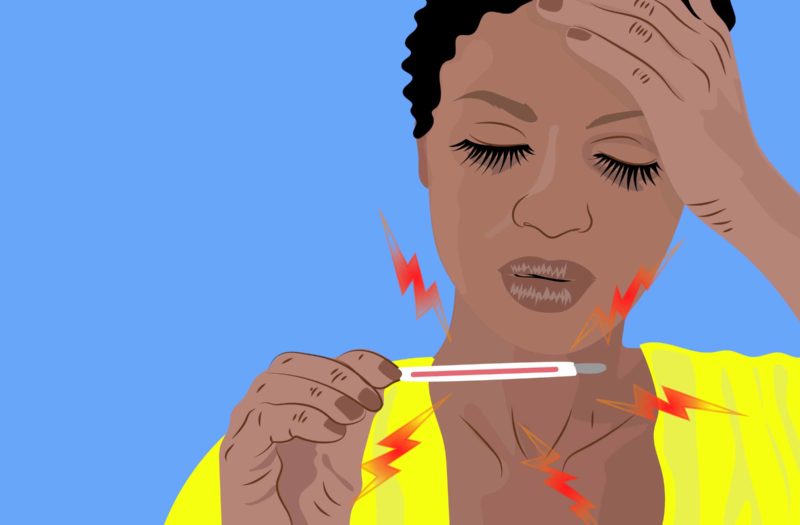Learn more about our FREE COVID-19 Patient Support Program for chronic illness patients and their loved ones.
One thing coming through loud and clear in news coverage of coronavirus, or COVID-19, is that only “the elderly” or some poorly defined group of people with “underlying health conditions” should be worried about serious illness or death. This casual way of speaking about our fellow human beings lacks compassion or a real sense of what it means to encounter serious illness and death.
I’ve been living with ankylosing spondylitis and related health issues for almost 20 years. My immune system is not like that of healthy people. I take infections seriously. I’ve beaten lots of them in my time, often at great personal cost.
This cultivated distant language of life and death percentages misses the main point about suffering. It’s impossible to survive a serious illness or to watch somebody die without serious consequences. I’ve caught both sides of this serrated coin. Surviving the swine flu 10 years ago changed my body and watching my mother die changed my soul.
The year 2009 found me living in Saint Louis, doing the work that I loved for a religious organization and living with a beautiful host family in an artsy hundred-year-old home. Life wasn’t just good, it was amazing.
And then I got the swine flu.
Experiencing Unexpected Complications
The cough felt like my ribs would explode for that thing from Alien to come clawing out. I could barely walk from muscle weakness, pain, and dizziness. Every time it seemed like things were improving there would be a setback. It took six weeks to recover enough to sleep without being propped up, shower properly, walk through the store without shaking, or comb conditioner through my hair without getting dizzy.
Then there was this strange new pain when eating or drinking. The doctor confirmed that coughing damaged my esophagus. I didn’t even know that that was a thing, but it’s possible to cough yourself into GERD. There was more. The post-flu immune firestorm set a chain of events in motion, which lead to lots of weird sweating without exertion, a yearlong liquid diet, exploratory surgery, lots and lots of medications, and ongoing gastrointestinal horror. The liquid diet helped — a little. The medications helped, but not enough. The surgery was a bust. That doc asked if I was cheating on my prescribed gluten-free diet and shrugged off “a bunch of unknown inflammation.”
Do you know what I’ll never shrug off? The 30 minutes I spent quietly crying in the presurgical area, convinced that I was 20 minutes from a doomsday pronouncement, and that somebody would have to take my cats. Would the same person take two elderly cats? My ears filled up with tears and the tech came in to hold my hand.
Oh, yeah — and I never got all the way better. My esophagus and intestines still like to pull really mean tricks sometimes. And this changes how I live my life. Eleven years on, I’m still living with side effects from that flu.
Witnessing Death
Compared to some, this is a success story. I didn’t die. I didn’t need a vent. But I lost six weeks of work and would have lost my job, housing, and everything I owned without my support system. Many vulnerable people don’t have what I did then.
A couple of years later, in 2012, my mother died after about two weeks on a ventilator in a medically induced coma. I spent most of that time by her side, directing her care. This meant sleeping in her ICU room, making every decision, consenting to donate her organs and tissues, and eventually standing there watching her die.
There aren’t enough words in the English language to adequately describe the trauma of this environment. Know that I was 35 when it happened and that did nothing to suppress the urge to cover my eyes or squeeze them shut whenever we passed the hospital in the year after her death.
Respecting the Potential Coronavirus Threat
We know that the sickest COVID-19 patients may require ventilators or other highly invasive procedures. This is nothing to take lightly, especially when basic hygiene measures may halt or slow the spread of this infection.
The current fear surrounding the spread of the coronavirus has people running around, buying up hand sanitizer, rubbing alcohol, wipes of all kinds, and face masks, but I wonder if they’re applying the same zeal to hand washing, covering coughs, and isolating themselves when ill?
We all have a responsibility to contribute to public health through mutual respect and helpful habits. Mutual respect doesn’t cost healthy people anything. They can only benefit from caring what happens to others. Healthy habits like hand washing, social distancing, and doing our best to stay home when ill are also win-win.
I’m not telling you this to manipulate you into building a panic room or buying stock in a face mask company. It’s about motivating you to do your part to protect public health and to acknowledge why many people with “underlying health conditions” are understandably very worried about the unknowns surrounding the coronavirus outbreak.
Empathize before you judge. We can all do our part to help keep each other safe.
Get Free Coronavirus Support for Chronic Illness Patients
Join the Global Healthy Living Foundation’s free COVID-19 Support Program for chronic illness patients and their families. We will be providing updated information, community support, and other resources tailored specifically to your health and safety. Join now.






